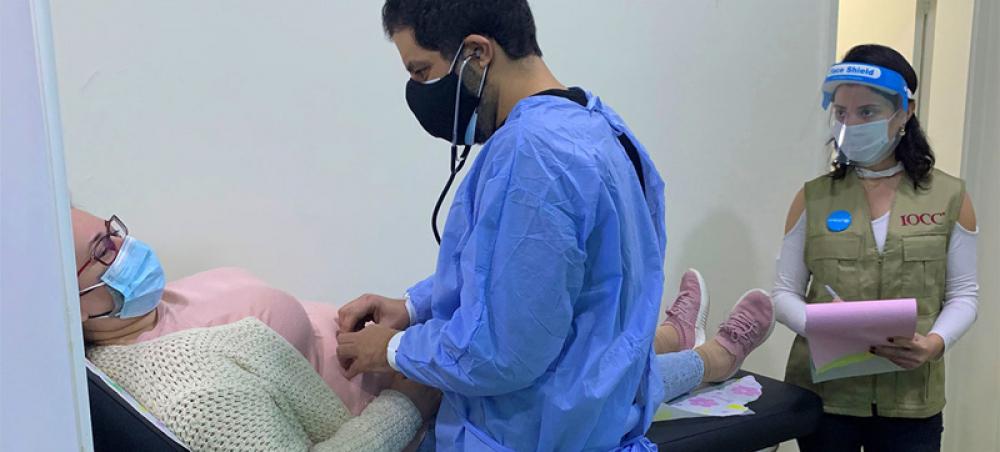Just Earth News | @justearthnews | 17 Sep 2021, 10:54 pm Print
 Lebanon
Lebanon UNICEF Lebanon
New York: Lebanon’s enduring economic crisis risks reversing decades of gains in people’s wellbeing, the head of the UN World Health Organization (WHO) said on Friday.
Speaking from the capital, Beirut, at the end of a two-day visit to the beleaguered Mediterranean country, Tedros Adhanom Ghebreyesus described finding shortages of “basic and essential medicines”.
Although the WHO has done what it can to fill gaps in healthcare there for the last 15 years, the WHO Director-General said that the situation had become “very dire” and that international support was needed immediately.
“It’s not just COVID, almost all services are being affected,” he said. “We visited two hospitals today… they told us that you know, they had, patients, cancer patients or other patients, but a shortage of medicines and those who cannot afford not having access to, they can’t have medicine, so meaning other services are being disrupted, and this is life, life, life and death.”
Lebanon’s unprecedented political and economic crisis has been made worse by the COVID pandemic and last August’s port explosion.
Fuel and power shortages
Tedros said that when he went to meet top Government officials, a power cut interrupted their encounter.
Similar fuel shortages have left hospitals functioning at 50 per cent capacity, the WHO Director-General said, adding that he had agreed to send a team of health experts to Lebanon to offer technical support as soon as possible.
The UN health agency has also provided “Band-Aid” assistance to the country’s medical sector, Tedros added.
This includes the purchase of essential medicines for 450,000 patients with acute and chronic conditions last year and this year.
But Dr Iman Shankiti, WHO Representative in Lebanon, told journalists that the caseload is now increasing and that demand is growing for medications to treat cancer, dialysis and emergency patients.
“At one point in time we were able to support 2,000 cancer paediatric cases and we were able to support 17,000 persons with catastrophic medications, but this is not enough,” she said. “I cannot say that we have filled the gap, we have closed the shortage. The needs are huge….It needs a whole-of-Government approach (to solving the shortages)”.
Regional insecurity risk
While in Beirut, Tedros visited several health facilities, including the newly renovated Central Drug Warehouse that had been destroyed by the Beirut port blast.
Accompanying him, Dr Ahmed Al Mandhari, Regional Director for the Eastern Mediterranean, highlighted the threat to regional instability if Lebanon’s health sector was not propped up.
The country was rapidly losing its longstanding status as a key provider of medical professionals, he warned, as its youngsters left the country to seek work elsewhere.
Lebanon’s strong vaccination and immunisation system was also under threat, said Dr Al Mandhari, noting that it had “protected the children of Lebanon and all those living in Lebanon, which helped us in the region and beyond to control communicable diseases like for example polio, measles and other communicable diseases that affect adults and children. So, if there is a break or a weakness in this expanded programme of immunisation in the country it will definitely hit other countries in the region.”
- Same price, smarter result: Anthropic drops major AI surprise
- Meta, NVIDIA announce long-term infrastructure partnership. Key details inside
- No one above the law: UN experts call for action over Epstein Files
- Teen with loaded shotgun races toward US Capitol — Arrested in dramatic standoff
- Power shift in Dhaka! Tarique Rahman takes oath as Bangladesh PM





-1763561110.jpg)
